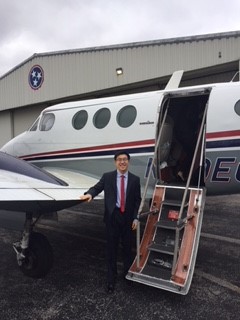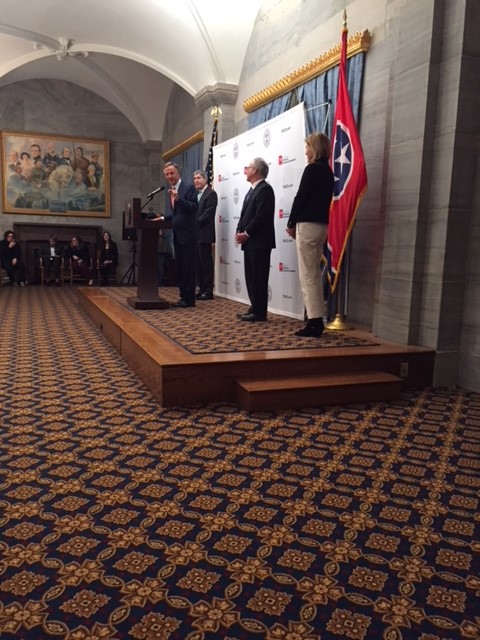Lessons Learned from My Time as an HOD Intern
This will be my last blog post as an HOD intern at the TN Department of Economic and Community Development. I have had such an enjoyable experience as an intern with this incredible department, and it has been an incredibly rewarding experience. I have been able to learn so much about the world of economic development, and specifically as it relates to workforce development. I will certainly miss the free lunches and the great people who work for the ECD. For this last post, I will be reflecting on some of the biggest lessons that I learned during my time at my internship site.

1. In this rapidly-changing economic environment, workforce development should be a priority of economic development agencies.
I have been lucky enough to intern at the ECD, as the organization has not only clearly recognized the increasing importance of workforce development in this increasingly complex economic environment, but also invested a considerable amount of capital and time into workforce development programs at the state level. At Gov Con, I remembered hearing at the Drive to 55 workshop that a few years ago, workforce development would not have been discussed at an economic development conference, but in 2018, a workshop on workforce development was able to fill an entire room. New technologies might be rendering some jobs obsolete, but it also creates jobs that do not even exist right now. These new jobs will require skills and knowledge that most people currently do not have, so it’s important to have an existing infrastructure that can support whatever their future needs are. Additionally, after having attended a number of jobs announcements in the past week, including Amazon and Ernst & Young, I was pleased to hear all of these announcements mention the importance of the quality of the workforce in the areas that the new jobs will be created in. These companies certainly seemed to have valued the efforts that the ECD has been making at the state level to improve workforce development programs.
2. In the world of workforce development, it is essential for actors at the state level to connect and form strong relationships with local communities.
During my time with the ECD, I have had the opportunity to visit a number of rural communities around Tennessee. While big urban cities like Nashville are often easily able to draw companies, some cities don’t have the lights of Broadway or top-15 colleges like Vanderbilt to attract companies to relocate within their limits. Additionally, each of the communities has unique workforce development needs that sweeping policies cannot adequately address. Thus, it is essential for the ECD to create and foster robust relationships with the people involved in workforce development in these communities around the state. I believe that the ECD’s regional model – dividing the state into 9 geographical regions and assigning each its own business development consultant and team – has allowed for the department to successfully accomplish this.
3. For workforce development programs to work, it is important to engage with higher education.
After visiting community and technical colleges around the state, learning about the Drive to 55, and observing how one high school is changing the way that it engages the learning of its students, I have come to understand that workforce development begins with higher education. Without a capable partner, workforce development programs struggle to ensure that the people have the sufficient skills and knowledge that they need to be successful in their respective fields. It is imperative for higher education institutions to understand what the industry needs are, and economic development agencies can help provide this information.

It’s been a pleasure documenting everything that I have learned about workforce development programs at the state level. Thank you everyone for reading my blog!
Signing off one last time,
Willie